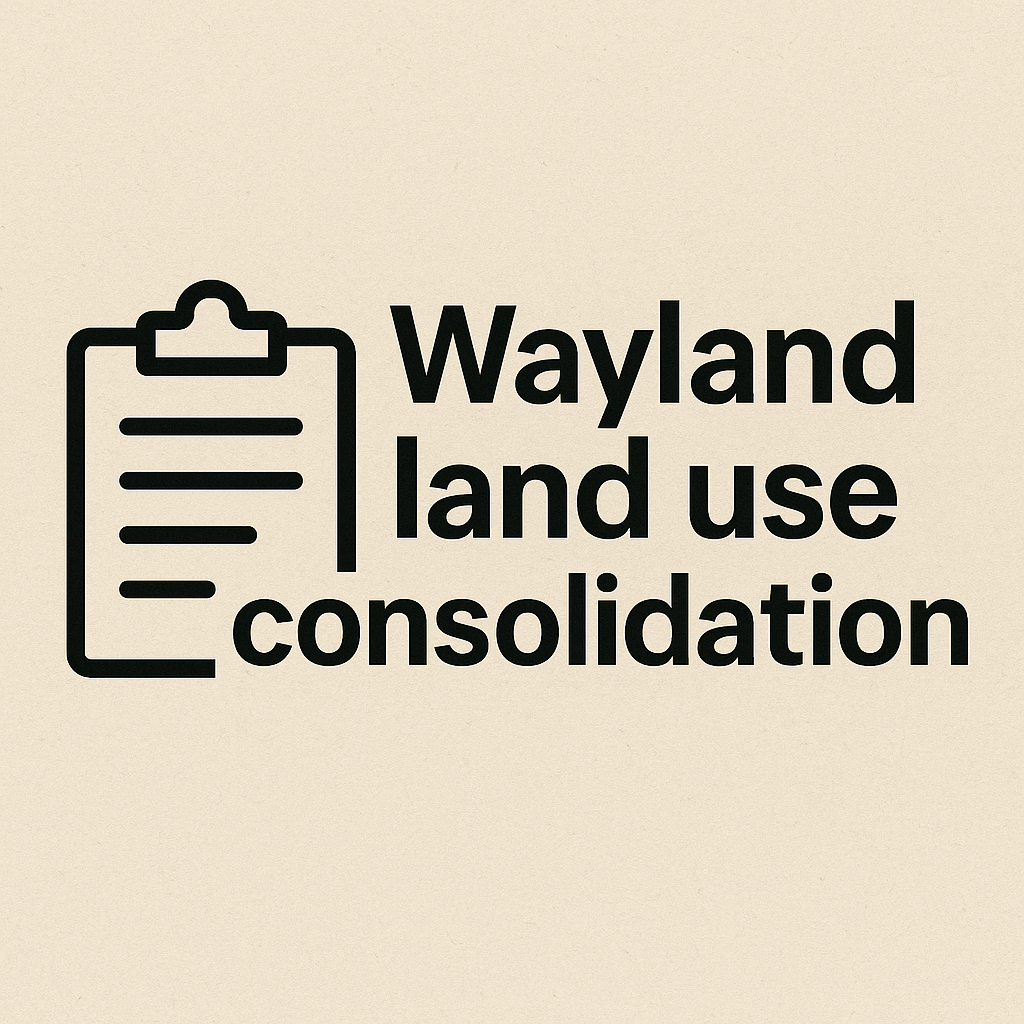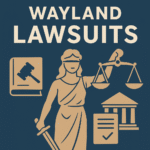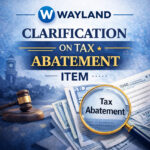Wayland’s effort to consolidate its land use administration and operations — Planning, Zoning, Conservation, Health, and Building — has been underway for nearly a decade. The project was designed to streamline a process that many residents and developers described as fragmented and confusing. But now, with the resignation of Land Use Coordinator Aneri Patel, who was hired in 2022 to serve as the central liaison across departments, the town is at a crossroads.
The initiative began in 2018 with a $38,000 Community Compact grant that funded consulting work by D.H. Keene Associates. The consultant was tasked with documenting permitting workflows and proposing improvements. The town’s permitting page at https://tinyurl.com/wppermit notes that documents that were prepared include the Keene Report, Permit Processing, and Departmental/Interdepartmental Workflows.
The Building Department’s website emphasized the digital direction: “The Building Dept. has been working to put all its permit applications online, utilizing the OpenGov software application” (see https://tinyurl.com/wpopengov). This shift promised applicants a “single front door” into what had previously been a multi-step, paper-driven process.
Administrative leadership
Former Town Administrator Nan Balmer laid early groundwork before leaving in 2017, beginning to convene staff across land use functions in annual reports and compliance filings. Her successor, Louise Miller, expanded the effort. At a February 2019 Select Board meeting, she reported that “they have finalized documents, the permitting report, workflow documents, and goals for the permitting software.” When Stephen Crane stepped in as acting Town Manager in 2022, he put staffing into place. At an October 2022 Select Board meeting, minutes record that “S. Crane announced the start of the new Land Use Coordinator Aneeri Patel.”
Under current Town Manager Michael McCall, the consolidated approach has become more routine. Zoning Board of Appeals decisions now often include a “Memorandum of the Land Use Department” in place of multiple separate staff comments and included in the case file.
Annual reports show measurable outcomes from this effort. In FY2022, the Building Department reported that 68% of all permits and related inspections were administered through online permitting software. By FY2024, that number had grown to 77%.
Permit revenues provide another window into activity. In FY2021, the town collected $1.48 million in permit fees, including $1.26 million in building permits. In FY2024, $753,749 and 921 total permits were reported.
Conservation activity has also been documented. In FY2024, the department processed 24 Certificate of Compliance requests, reviewed 17 stormwater projects, and issued 12 permits, according to the FY2024 Annual Report.
Staffing has been adjusted along the way; that report also announced a new hybrid administrative role working in both the Conservation Department and the Building Department.
Processing speed
The town’s zoning bylaw sets clear timelines: the Planning Board must verify completeness within three business days, advisory departments have 30 days to submit reports, and the board must take action on major site plans within 60 days (or 45 days for minor ones).
In practice, continuations and extensions are common, but they are formalized and often requested by applicants. At the October 8, 2024 Planning Board meeting, minutes note: “The applicant requested this continuation in writing because they are awaiting materials from the Town’s peer reviewer.” On November 12, 2024, the board voted to extend the deadline for filing of the decision to December 3, 2024. Decision files from 2025 show similar adjustments, with signed extensions such as: “Continuation of the Decision Deadline from September 20, 2024, to November 19, 2024.”
Wayland does not publish average turnaround times, but the record suggests statutory clocks are observed, extended formally and not allowed to lapse.
Public input
Applicants and residents have occasionally expressed concerns about the speed. At the October 8, 2024, Planning Board meeting, applicants themselves asked for a delay due to the peer-review process. Earlier, in January 2021, Economic Development Committee chair Rebecca Stanizzi urged the ZBA to create a streamlined permitting process for permanent outdoor seating. A recent August applicant of a home improvement project that involved review by the Building, Health, and Conservation Departments described the process as not transparent and reported experiencing unexplained delays, resulting in a protracted construction project.
Online applications have reduced paper handoffs for routine permits, and homeowners can track their permits without multiple trips to the Town Building.
For larger projects, the answer is more complicated. Statutory boards remain independent, so complex projects still require multiple hearings, peer reviews and sometimes deadline extensions. While staff now issue consolidated memoranda rather than fragmented comments, applicants still face multistep processes.
Staffing issues
For staffing, the hybrid building/conservation role and the now-vacant coordinator position show structural progress but also highlight fragility. Without consistent staffing, coordination depends on the manager’s office and the boards themselves.
As land use coordinator, Patel was the visible “front door” for applicants, guiding them through boards and ensuring staff memoranda were delivered. Meanwhile, a new customer service window constructed to serve both the Building and Conservation Departments remains unstaffed. Applicants who come in person often find no one available to direct them, undercutting the purpose of the consolidated model.
McCall noted that he has substantial professional resources at his disposal and that he will continue to rely on their expertise and interdepartmental workflows. The absence of a central liaison and an operational service window leaves open the question of whether residents will feel the system is truly streamlined.
Wayland’s consolidated land use effort has delivered measurable improvements: digital permitting now dominates, more than three-quarters of applications are handled online, and staff memoranda reduce contradictions between boards. Yet large projects still require multiple hearings, continuances remain routine, and the new customer window sits empty.
















